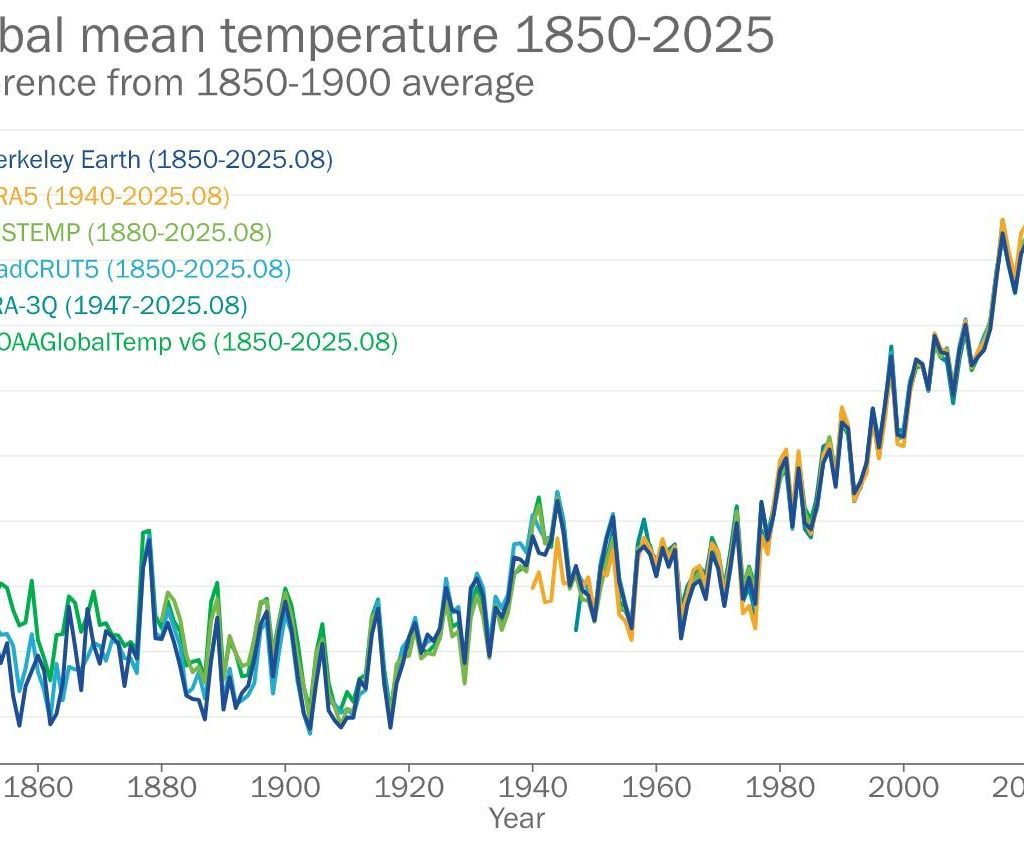2025 set to be among hottest years on record: WMO
| 2 min read

With only two months remaining in the year, 2025 is set to be among the top three hottest years on record, according to the State of the Global Climate Update from the World Meteorological Organization (WMO).
The mean near-surface temperature in January-August 2025 was 1.42 C above the pre-industrial average, said the WMO report, released just ahead of the United Nations climate change summit (COP30) in Belém, Brazil, Nov. 10-21. The past 11 years, 2015 to 2025, will individually have been the eleven warmest years in the 176-year observational record, with the past three years being the three warmest years on record.
Why it matters: Rising global temperatures are influencing agricultural production and food systems
Concentrations of heat-trapping greenhouse gases and ocean heat content, which both reached record levels in 2024, continued to rise in 2025, said the WMO. Arctic sea ice extent after the winter freeze was the lowest on record, and Antarctic sea ice extent tracked well below average throughout the year. The long-term sea level rise trend continued despite a small and temporary blip due to naturally occurring factors, said the report.
Weather and climate-related extreme events to August 2025 — ranging from devastating rainfall and flooding to brutal heat and wildfires — had cascading impacts on lives, livelihoods and food systems. This contributed to displacement across multiple regions, undermining sustainable development and economic progress.
“This unprecedented streak of high temperatures, combined with last year’s record increase in greenhouse gas levels, makes it clear that it will be virtually impossible to limit global warming to 1.5 C in the next few years without temporarily overshooting this target,” said WMO Secretary-General Celeste Saulo in a press release. However, she added that “the science is equally clear that it’s still entirely possible and essential to bring temperatures back down to 1.5 °C by the end of the century.”
UN Secretary-General António Guterres called on nations to “act now, at great speed and scale, to make the overshoot as small, as short, and as safe as possible – and bring temperatures back below 1.5 C before the end of the century.”


